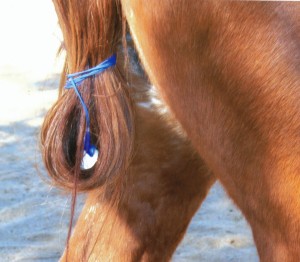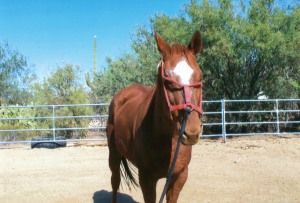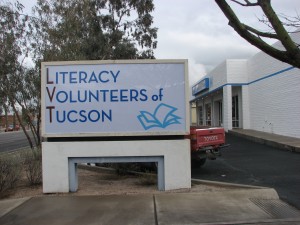Inspired by the Make-A-Wish Foundation, a local Tucson woman quit work, sold her house and created her own non-profit organization.
Kids, Animals, Life and Dreams (K.A.L.D.) is the dream of founder, Mona Hand. K.A.L.D. is an organization that provides recreational animal therapy to seriously ill children and foster children. Hand sold her original home and bought one that could house horses, mini donkeys and goats for her program.
“I have been involved with many different organizations,” said Mona Hand, founder of K.A.L.D. “I realize that there was a need for terminally ill children to be able to come outside and see the healing power of our animals.”
In 2002, K.A.L.D. offered this service only to seriously ill children but the program received a small amount of visitors because of the difficulties to bring kids out to the animals.
“We had to evolve,” said Hand. “Sometimes circumstances have to be tweeked so I found another set of people who could benefit from our program.”
Hand started working with Devereux Arizona, a non-profit agency that provides foster homes throughout the United States. Hand volunteered her time with an all girls group home and received her respite certification.
“Once I went into the home I realized that these weren’t your typical kids,” said Hand. “They didn’t have any afternoon activities or a way to express their interest.”
It was here that K.A.L.D. expanded. Various volunteers have taught the kids to scuba dive, sew and ballroom dance. The organization has facilitated internships and volunteer opportunities with Greyhound rescues and the United Way, so the girls will have philanthropic experience to include on their résumés.
“I try to facilitate the interest of these girls,” said Hand. “I also want to make sure these girls have an interest in themselves and better themselves.”
“Some kids in foster care aren’t able to trust people because it’s never long term. But an animal, they can trust and love,” said Hand. “When girls first come here some of them have never seen a farm animal. EAL puts the girls in a situation to interact with these animals and each other.”
One of the activities the girls perform is to put a halter on a horse. The goal of the exercise is for the girls to do something they have never done before, without being told if they put the halter on the right or wrong way.
K.A.L.D. collaborates with many different organizations throughout Tucson to facilitate workshops for the kids. Currently they have three volunteers but are looking for more.
“We love to have volunteers with something to teach these girls,” said Hand. “They have to be willing to commit their time for the girls but they also need to bring something to the table.”
Through these collaborations and volunteers, K.A.L.D.’s goal is to turn these girls into role models and mentors for other children. If you would like to donate time or money please email Mona at kaldoftucson@yahoo.com.
More on E.A.L


